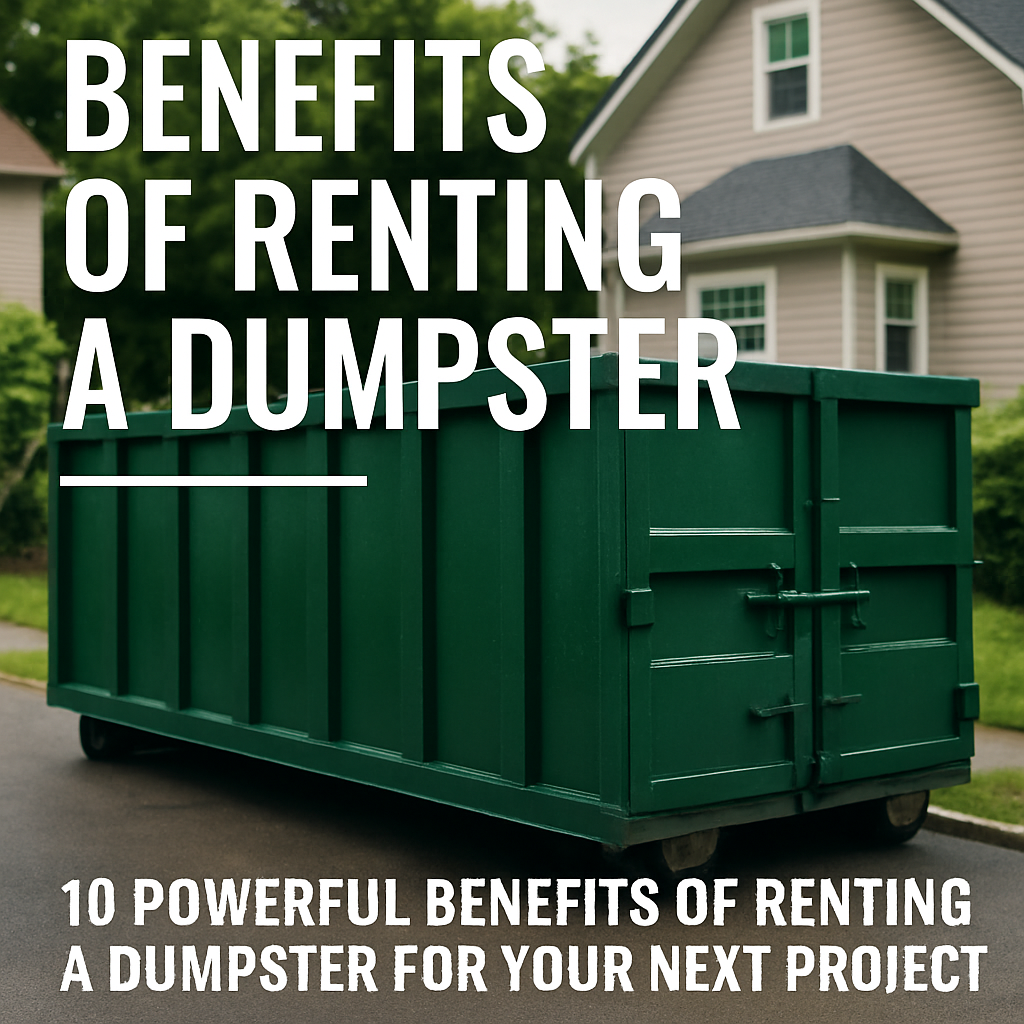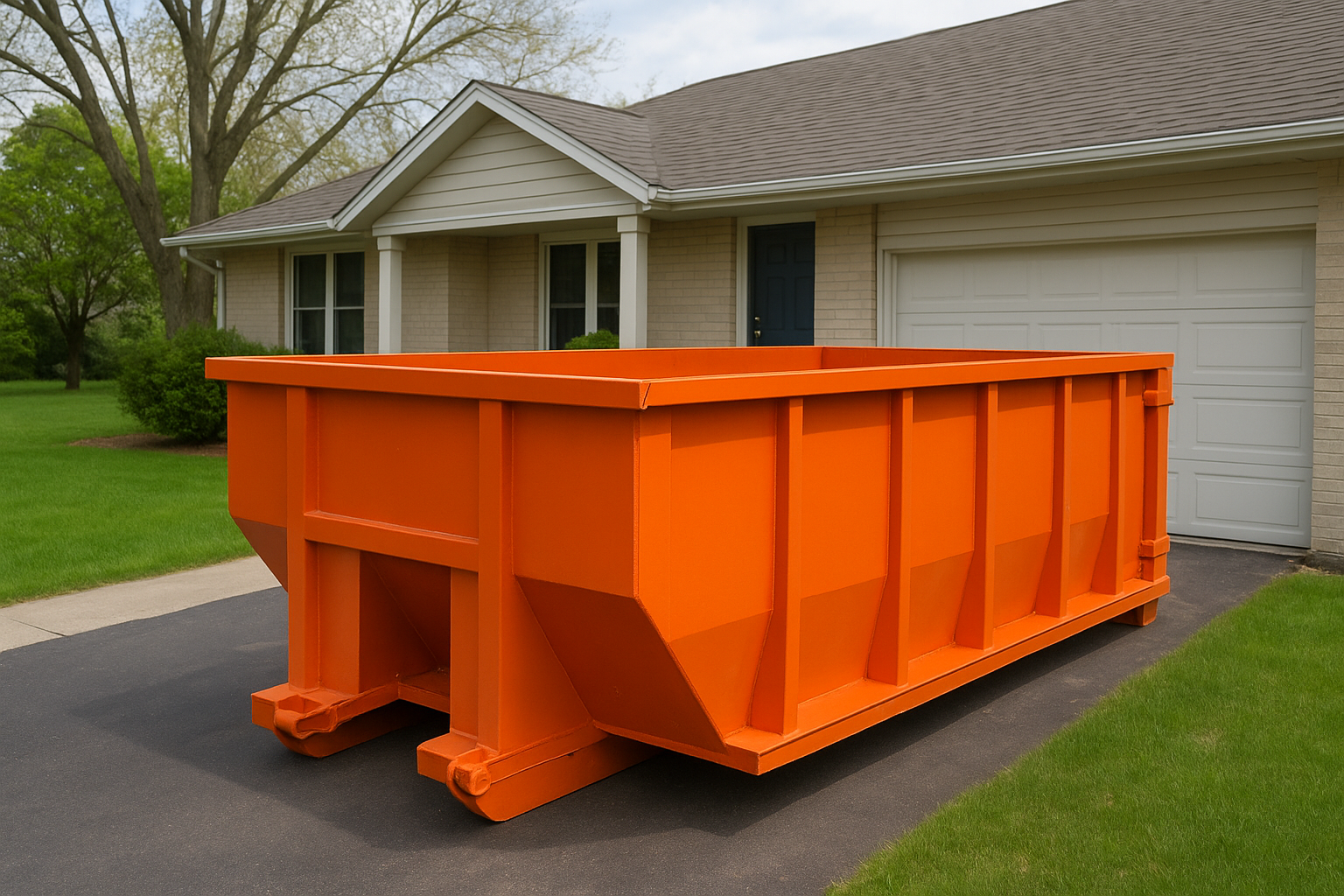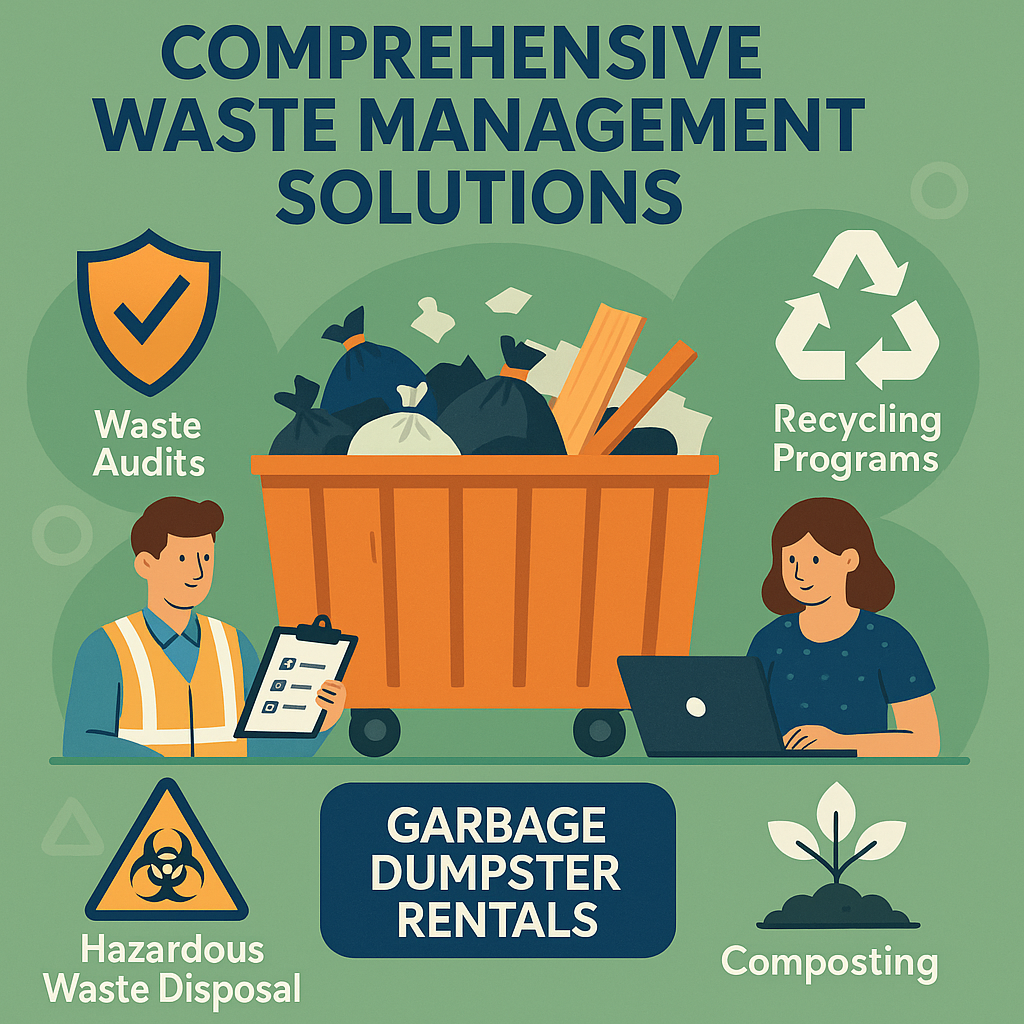
Dumpster rentals aren’t just for big demolition jobs. Whether you’re cleaning out a garage, remodeling a kitchen, or managing waste on a construction site, renting the right type of dumpster can save you time, money, and hassle. In this comprehensive guide, we’ll explore the different types of dumpster rentals, their ideal uses, costs, environmental considerations, and how to choose the best fit for your project.
Table of Contents
- Introduction to Dumpster Rentals
- Why Rent a Dumpster?
- Types of Dumpster Rentals
- Dumpster Sizes and Their Applications
- Cost of Dumpster Rentals
- Environmental Impact and Recycling
- How to Choose the Right Dumpster Rental
- Dumpster Rental Tips and Best Practices
- Conclusion
Introduction to Dumpster Rentals
Dumpster rentals are a convenient way to dispose of large quantities of waste, whether it’s household junk, yard debris, or construction rubble. These heavy-duty containers are delivered to your location, allowing for easy waste collection and removal.
Why Rent a Dumpster?
- Efficiency: Save multiple trips to the dump.
- Safety: Contain debris that could otherwise pose hazards.
- Compliance: Avoid local violations by following legal disposal methods.
- Convenience: Schedule pickups and deliveries on your terms.
Types of Dumpster Rentals
Roll-Off Dumpsters
These are the most common and versatile type of dumpster rental. They’re rectangular and open-topped, rolled off a truck onto your site.
- Best For: Large renovations, roof replacements, spring cleaning
- Sizes: 10 to 40 yards
- Features: Easy loading from the top or rear
Front Load Dumpsters
Designed for long-term use, front load dumpsters are commonly used by businesses for regular waste disposal.
- Best For: Offices, restaurants, apartment complexes
- Sizes: 2 to 8 yards
- Features: Lids for odor control and automated truck pickup
Rear Load Dumpsters
Rear load dumpsters have slanted tops and use a winch system for emptying.
- Best For: Locations with limited access or space
- Sizes: 2 to 8 yards
- Features: Sloped rear design for tight spots
Construction Dumpsters
Heavy-duty dumpsters designed to hold demolition debris, drywall, concrete, and other rugged waste.
- Best For: Construction sites, large renovations, demolitions
- Sizes: 20 to 40 yards
- Features: Reinforced walls and flat tops
Residential Dumpsters
These are ideal for homeowners doing moderate cleanouts or remodeling.
- Best For: Garage cleanouts, basement clearing
- Sizes: 10 to 20 yards
- Features: Compact enough for driveways
Commercial Dumpsters
Meant for ongoing commercial waste management.
- Best For: Businesses, schools, hospitals
- Sizes: 2 to 8 yards
- Features: Regular scheduled pickups
Yard Waste Dumpsters
Specifically designed for green waste.
- Best For: Landscaping, tree removal, leaf cleanup
- Materials Allowed: Grass, shrubs, leaves, branches
- Prohibited: Soil with contaminants, mixed debris
Specialty Dumpsters
Includes containers for specific waste like concrete-only{:rel=“nofollow noopener”}, dirt-only, or hazardous waste.
- Best For: Industrial jobs or regulated materials
- Note: Always check with the rental provider for specific guidelines
Dumpster Sizes and Their Applications
| Size (Yards) | Capacity (Trash Bags) | Common Uses |
|---|---|---|
| 10 yd | ~50–60 | Small home projects, decluttering |
| 15 yd | ~70–90 | Basement or garage cleanouts |
| 20 yd | ~110–130 | Kitchen remodels, landscaping |
| 30 yd | ~170–190 | Major home renovations, deck removals |
| 40 yd | ~230–250 | Commercial jobs, construction sites |
Cost of Dumpster Rentals
Dumpster rental prices vary based on size, location, duration, and type of waste.
Typical Price Ranges:
- 10-yard: $250–$450
- 20-yard: $350–$550
- 30-yard: $400–$650
- 40-yard: $450–$750
Cost Factors:
- Rental duration
- Local disposal fees
- Weight limits
- Permit requirements
Environmental Impact and Recycling
Choosing the right dumpster service{:rel=“nofollow noopener”} helps reduce environmental harm. Many rental companies now offer:
- Sorting and recycling options
- Eco-friendly hauling trucks
- Green-certified disposal sites
What You Can Do:
- Avoid overfilling
- Separate recyclables
- Never dump hazardous waste without proper containers
How to Choose the Right Dumpster Rental
- Evaluate Your Project: Size, type of waste, space available
- Know Local Regulations: Some cities require permits
- Compare Providers: Look for reviews, transparent pricing
- Ask About Weight Limits: Overage charges can be costly
- Schedule Ahead: Dumpsters book quickly during peak seasons
Dumpster Rental Tips and Best Practices
- Protect Your Driveway: Use plywood underneath to prevent damage
- Avoid Prohibited Items: Such as tires, paint, batteries
- Load Efficiently: Place bulky items first
- Don’t Delay Pickup: Late fees may apply
- Be Honest About Contents: Accurate info avoids surprise charges
Conclusion
Dumpster rentals{:rel=“nofollow noopener”} offer practical, affordable solutions for waste management across a wide range of projects. From compact residential bins to industrial roll-offs, choosing the right dumpster not only saves you time and money—it helps protect the environment. Whether you’re a DIY weekend warrior or a commercial contractor, there’s a dumpster out there that fits your needs.
Need Help Finding the Right Dumpster?
Get expert advice, compare rental services, and book your dumpster{:rel=“nofollow noopener”} online today!



